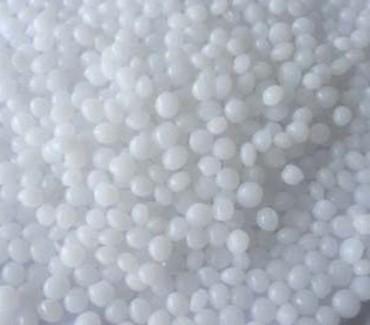What are the thermal functions of Jiangmen engineering plastics
Engineering plastics have been widely used in our daily life as engineering materials and substitute for metal to make machine parts.
In the material selection of engineering plastics, the data engineer should consider not only the mechanical function and aging resistance function of the data, but also its thermal function. There are many tests on the thermal function of engineering plastics. What do we need to know?
1. Continuous operating temperature
Indicate the heat resistance of plastic molded products. It is generally divided into physical heat resistance and chemical heat resistance. The former refers to the function of regular shaped plastic molding style to maintain the product shape under the specified heating temperature; The latter indicates the thermal stability of the bisector bond of the plastic molding material.
It mainly indicates the heat-resistant function of plastic molding style under no-load conditions. The long-time working temperature of common engineering plastics such as PEEK is 260 ℃.
2. Glass transition temperature
When the temperature is higher than TG, the amorphous polymer will become soft and rubbery. It is very important to ensure that the operating temperature of amorphous polymers is lower than TG, so as to obtain the desired mechanical function.
3. Thermal deformation temperature
Thermal deformation temperature is a popular term for load deflection temperature. It is a method to measure the rigidity of plastics at high temperature: under a certain load, keep heating at a certain speed until the temperature when the style shows the indicated deformation.
Because in amorphous plasticity, the load deflection temperature is the lower limit temperature indicating that it is close to the glass transition temperature, so it can become a practical reference policy.

However, in the case of crystalline plasticity, the load deflection temperature is the temperature between the glass transition modification point and the crystallization melting point, so it is meaningless both in theory and in practice, and the error of the measured results is also very obvious. This parameter is used to measure the temperature tolerance of different data under short-time temperature rise and load.
4. Linear expansion coefficient
Linear expansion coefficient refers to the expansion share of plastic molded products when the temperature rises by 1 ℃ under a certain pressure. It is indicated as the linear expansion coefficient relative to the unit length. This coefficient is one of the important guidelines for understanding the degree of product standard changes with the temperature of plastic molded products rising.
5. Thermal conductivity
The thermal conductivity indicates the heat passing through the finished plastic product with a temperature difference of 1 ℃ and a thickness of 1 cm within 1 s. It is a reference policy for studying the thermal insulation of products when planning products.
6. Specific heat capacity
Specific heat capacity refers to the heat capacity relative to the unit mass (1g) of plastic molded products. Generally, it indicates the heat required when the temperature of plastic molded products rises by 1 ℃. The specific heat capacity is the same as the thermal conductivity, which is the reference data for discussing the temperature rise of policy products during product planning.
7. Embrittlement temperature
A measure of the low temperature mechanical behavior of plastics. When the specimen is impacted by a hammer with certain energy. Determination of embrittlement temperature: clamp one end of the regular shape and standard molding style with the test pliers, fix it in the test tank, soak it in the specified low-temperature heat transfer foreword at all levels, place it for 2.9-3.1min, knock it once with the impact hammer, and calculate the embrittlement temperature from the results of the damaged style.
Source: Jiangmen engineering plastics http://yzw188.cn/
-
04-13
PVC Engineering Plastics: how PVC plastic pipes are formed
The forming process of PVC plastic pipes should start from the raw materials of PVC plastic granules, which can be divided into soft PVC and hard PVC according to the added amount of stabilizer, plast
-
11-12
What is the filling property of Jiangmen engineering plastics
What is the filling property of Jiangmen engineering plasticsIn recent years, PC modified plastics have developed rapidly in China, and its industrial system is gradually established and improved. Th
-
10-08
Jiangmen Engineering Plastics: how to classify Jiangmen engineering plastics?
How to classify Jiangmen engineering plastics? 1. Classification by application characteristicsAccording to the different application characteristics of famous plastics, plastics are usually divided
-
08-30
Application scope of PBT engineering plastics
PBT engineering plastics are widely used in electronics, car industry, office machinery and other fields. In Japan and the developed countries in Europe, PBT engineering plastics are mainly used in t